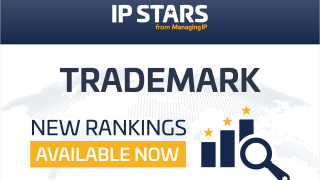Thailand
Managing IP has collated insights from IP experts in several Asian jurisdictions that are significant markets for many Japanese companies
12th annual awards announce winners
The Women in Business Law Awards is excited to present its shortlist for the 2022 APAC Awards.
The Asia-Pacific awards research cycle has begun – don’t miss out on this opportunity to get recognised
Recently published Special Focus articles
Recently published Special Focus articles
-
Sponsored by Satyapon & PartnersKritsana Mingtongkhum and Nathan Wood of Satyapon & Partners look at the growing business of medical mask counterfeiting as a result of COVID-19 and explore the ways in which trademark owners can protect themselves, preferably through registration, or failing that, through recourse to criminal law
-
Sponsored by Tilleke & GibbinsWith many employees in Thailand working outside their company's normal IT security fence, their increased use of their own computers and devices instead of those in their offices with standard or enhanced security mechanisms has made it more challenging for employers to control access to key business information. In the rush to set up a fully or partially remote workforce, most companies have had little time to establish work-from-home guidelines on protection of their valuable intangible assets like trade secrets and confidential business information. The need for sufficient internal guidelines on copying files to USB drives, emailing files to personal accounts, and uploading to cloud storage is already widely recognised, but who could have imagined the need for rules precluding sharing proprietary information over Zoom, Skype, Webex, and such programs?
-
Sponsored by Tilleke & GibbinsTraditional IP enforcement measures are sometimes ill-equipped to deal with the rapidly evolving nature of internet resources in the digital era. Thailand has been responding to the exponential rise of online IP infringement on a rolling basis – most recently in 2017 when it amended the Computer Crime Act (CCA) to give IP owners the option of blocking websites that post IP-infringing content. This is set out in Section 20(3) of the law.














